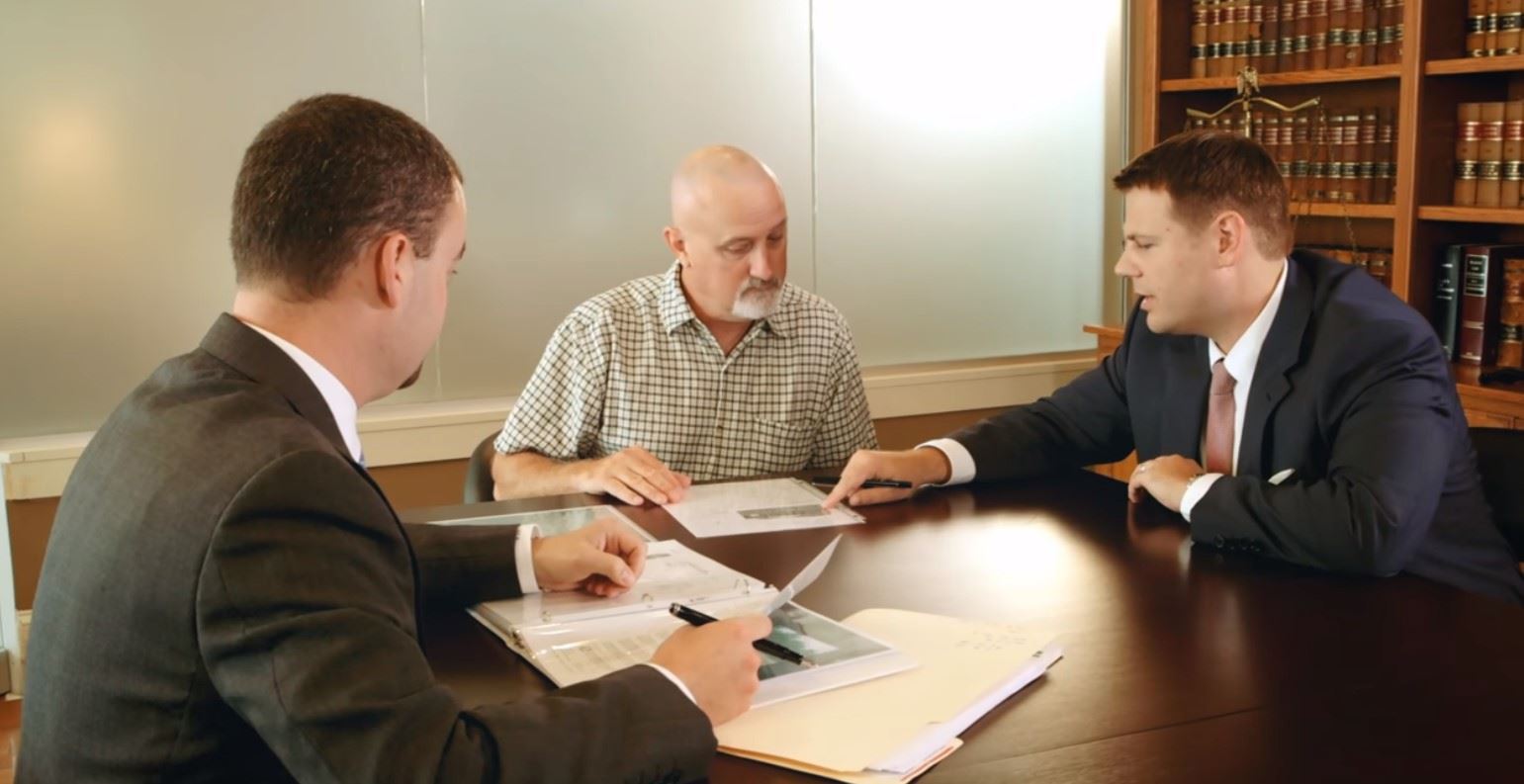

SUFFOLK CHILD SUPPORT LAWYER
Helping to Secure Your Child's Future in Virginia Beach & Cape Charles
Every child has the right to receive financial support from each of his or her parents. During a divorce, it is crucial to make sure a child’s needs are met. Sometimes, parents have a difficult time receiving child support payments from their former spouse or, conversely, struggle to make those payments. Others experience a significant change in circumstances which demand a child support order to be reconfigured to meet the new conditions.
Whatever child support struggle you are facing, Bush & Taylor, P.C. can help. With over 30 years of combined experience, our Suffolk child support attorneys have the skills and resources to guide you through your family law matter. When you require professional legal services, let our responsive and caring legal team come to your aid.
Need Help with Child Support Issues?
Contact us today at (757) 926-0078 to discuss your case with our experienced Suffolk child support attorneys.
Virginia Child Support Laws
Virginia law requires both parents, whether married or not, to provide financial support for their children. In the event of a divorce, only the custodial parent may request child support. The custodial parent is the one whom the child stays with the majority of the time. Although the non-custodial parent will be making the payments, the custodial parent is required to contribute a fair share.
In Virginia, child support is based on a variety of factors, including:
- The needs of the child
- The number of children
- The incomes of both parents
- The needs of the parents
A court or state agency will determine the exact amount of child support according to the guidelines outlined in the Code of Virginia. The way the child support is split between parents depends on the custody arrangement.
The various custody situations and their corresponding child support calculations include:
- Sole custody arrangement — when a child lives with one parent all the time, the child support is shared based on the proportion of what each parent contributes to the combined income.
- Split custody arrangement — when multiple children are divided between the parents, each parent’s proportionate share is factored, and the parent with the higher income pays the difference in the amounts.
- Shared custody arrangement — when a parent has custody or visitation of a child for more than 90 days of the year, the amount of support is based on the percentage of time the child spends with each parent.
How Child Support Is Calculated in Virginia?
In Virginia, child support is based on the reasonable needs of the child and the ability of the parent to pay. The most significant factors are the parents’ income, daycare expenses, the cost of medical insurance, any social security benefits the child may receive and the child’s living arrangements. A judge will then reevaluate the amount every three years.
The court determines the amount using a mathematical calculation created by the Virginia legislature. This calculation results from several inputs from which a child support award is tabulated. Based on those inputs, the guideline tables produce what is called the “presumptive child support award.”
The inputs for the court to consider are:
- the number of children for whom support is sought;
- the gross monthly income of each party;
- any work-related daycare expense incurred by the parties; and
- the health, vision, and dental insurance premium paid by one parent for the children.
Certain types of income such as public benefits, social security disability, child support received for another child, or overtime received if earned to pay a support arrearage, do not count as income on the child support guideline calculation. In addition to those listed above, there are countless other circumstances that can alter the child support calculation.
The court must also determine which child support guideline to use. Typically this done by determining if the child is with the non-custodial parent more than ninety days during the year. If so, the court may use a shared custody guideline which results in a lower child support figure. If not, then the court will use a primary custody guideline resulting typically in a higher child support award.
To learn more about calculating child support in Virginia, contact the Suffolk child support attorneys at Bush & Taylor, P.C.
How Much Back Child Support is a Felony in Virginia?
In Virginia, if a parent owes more than $5,000 in child support and is more than a year past due, they can be charged with a felony. If convicted, the parent could face up to two years in jail.
However, there are a few exceptions to this law. For example, if the parent can show that they could not pay the child support due to a good cause, such as unemployment or a medical emergency, they may not be charged with a felony.
If you are facing charges for failing to pay child support, speaking with an attorney to discuss your options is essential. An attorney can help you understand the charges against you and can represent you in court.
Modifying Child Support Orders
Child support orders can be modified if there is a significant change in circumstances. Some common reasons for modification include:
- Changes in income: If a parent experiences a job loss, a significant pay raise, or a change in employment status, child support payments may need to be adjusted.
- Medical emergencies: A serious illness or medical condition may create financial burdens, warranting a modification in the amount of child support.
- Child’s needs: If the child’s needs change, such as requiring special education or medical care, the support amount may need to be increased.
To request a modification, the custodial parent or the parent paying support can file a petition with the court. The court will then review the case and determine if the modification is justified based on:
- Significant change in circumstances: The change must be substantial, such as a job loss or the child’s increased needs.
- Best interests of the child: Any modification must be in the child’s best interest.
Once filed, the court will schedule a hearing to review the request. If the judge finds the change is warranted, they will issue a new child support order.
Enforcing Child Support Payments
If child support payments are not being made, there are several legal actions parents can take:
- Wage garnishment: The court can order that the paying parent’s wages be garnished, meaning a portion of their paycheck will be automatically deducted for child support payments.
- Property liens: The court can place a lien on the parent’s property to ensure that the child support payments are eventually made.
- Contempt of court: If the paying parent refuses to pay, they could be held in contempt of court, leading to fines or even jail time.
The Virginia Division of Child Support Enforcement (DCSE) plays a key role in enforcing child support orders. The DCSE can help locate the non-paying parent, garnish wages, and even suspend the parent’s driver’s license or passport in extreme cases.
Child Support in High-Income Cases
In cases where one parent has a significantly higher income than the other, child support calculations may not always follow the standard guidelines. Some important points include:
- Deviation from standard guidelines: In high-income cases, the court can deviate from the standard guidelines if they believe the basic support formula does not meet the child’s needs. This could result in a higher support amount.
- Additional expenses: The court may consider additional factors such as the child’s extracurricular activities, private school tuition, or any special needs they may have.
In these cases, the goal is to ensure that the child’s quality of life is maintained, regardless of the parents' income levels. The court will typically look at the child’s lifestyle and needs to determine the appropriate amount of support.
FAQs About Child Support in Virginia
Can child support be modified if a parent gets remarried?
- Child support is generally based on the financial circumstances of both parents. If a parent remarries, their new spouse’s income is typically not considered when calculating child support, unless there are special circumstances, such as the new spouse providing direct support for the child.
What happens if the non-custodial parent moves out of state?
- If the non-custodial parent moves out of state, the child support order remains in effect. However, enforcement can become more complicated. The custodial parent may need to work with the Virginia Division of Child Support Enforcement (DCSE) or the court in the new state to continue enforcing payments.
Can child support be lowered if the paying parent loses their job?
- Yes, if the paying parent loses their job, they can request a modification of the child support order. The court will consider the change in circumstances, such as unemployment, and determine if a reduction in payments is appropriate. However, the parent must show proof of the job loss and other relevant factors.
Does child support end when the child turns 18?
- In Virginia, child support typically ends when the child turns 18, but there are exceptions. If the child is still in high school, support may continue until they graduate or turn 19, whichever comes first. Additionally, child support may continue if the child has special needs or a disability.
What if the custodial parent is not spending the child support money on the child?
- If the custodial parent is mismanaging child support funds, the paying parent can request a review or modification of the support order. It may be possible to seek supervised payments or prove misuse of the funds through legal action.
How can I stop child support payments once my child turns 18?
- To stop child support payments when your child turns 18, you must file a petition with the court. The court will review the case and, if appropriate, issue an order terminating child support.
Can grandparents or other relatives receive child support?
- In most cases, child support is paid to the custodial parent. However, if a grandparent or another relative has legal custody of the child, they may be entitled to receive child support payments.
Contact Our Child Support Attorney in Suffolk Today
At Bush & Taylor, P.C., our family lawyers in Suffolk provide exceptional representation for parents who are seeking or being required to pay child support in Virginia. We can be the voice you need in your fight for fair child support.
Ready to Secure Fair Child Support?
Contact us now at (757) 926-0078 for a consultation and let our legal team guide you through the process.








